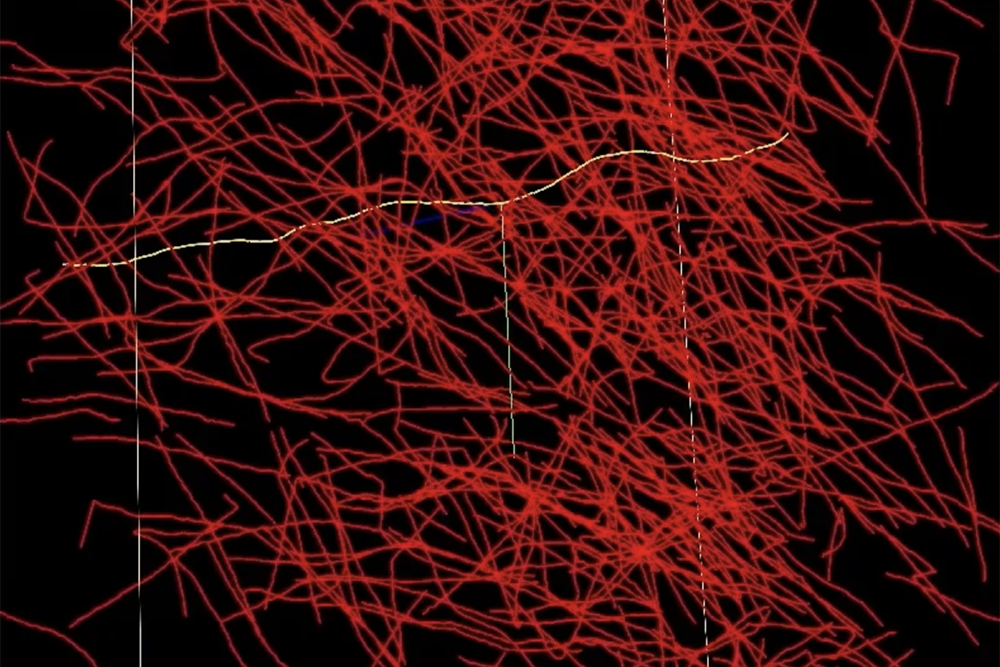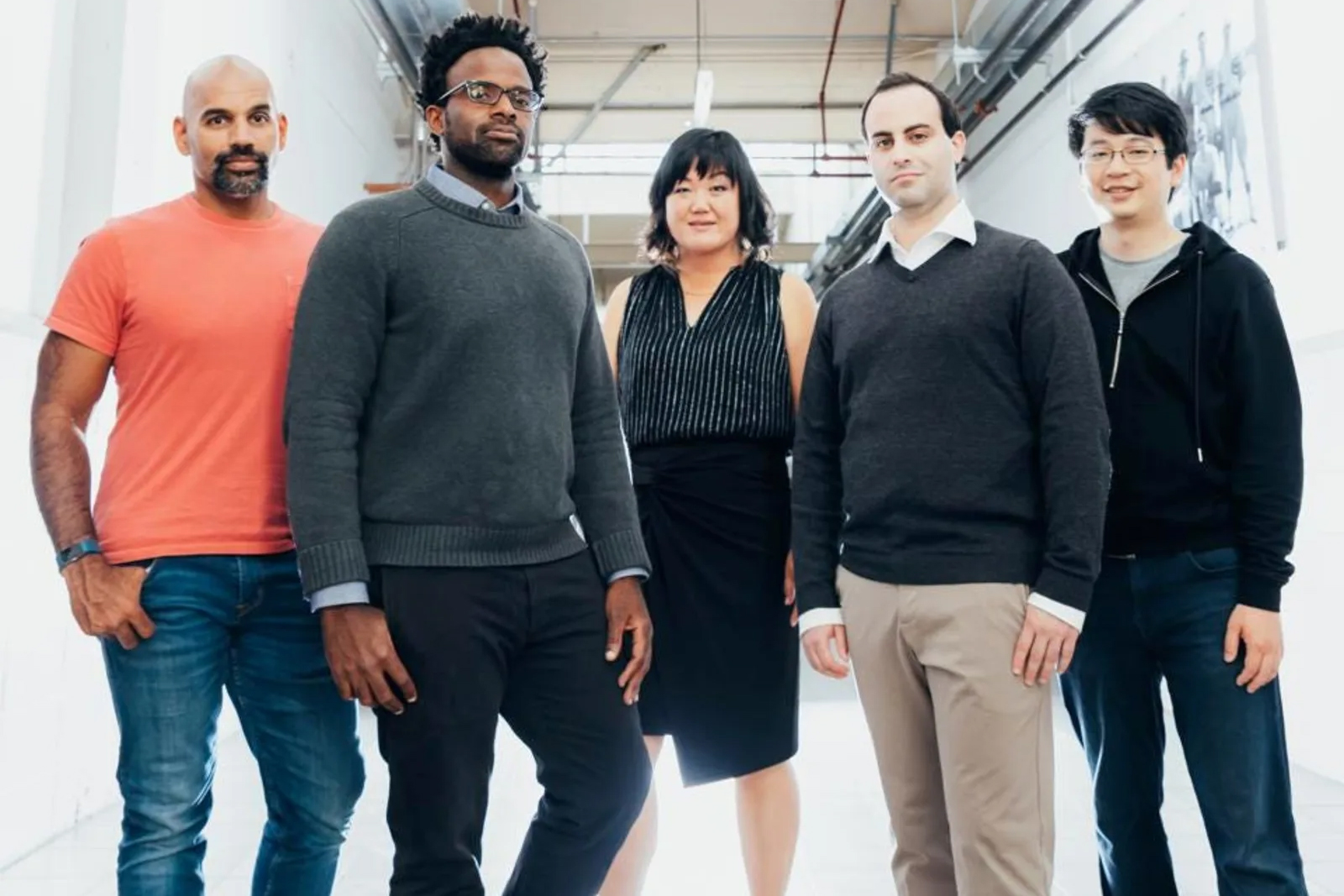In the heart of the Dzaleka Refugee Camp in Malawi, Jospin Hassan faced significant barriers to education opportunities. Instead of waiting for change, he took action and created it himself.
Recognizing the potential of data science and artificial intelligence (AI) to unlock job prospects and tackle pressing issues in his community, Hassan enrolled in the 2020-21 Certificate Program in Computer and Data Science from MIT Refugee Action Hub (ReACT). With the knowledge and skills acquired, he began to empower other eager learners in Dzaleka.
Now known as Emerging Talent and part of the Jameel World Education Lab (J-WEL) at MIT Open Learning, this initiative currently supports its fifth cohort of motivated learners. The year-long certificate program blends top-notch computer science and data analysis courses from MITx, professional skill development, hands-on experiences, and networking opportunities within MIT’s global innovation community. Hassan’s cohort enhanced their leadership abilities through engaging online workshops and the intensive 10-week MIT Innovation Leadership Bootcamp.
“My greatest takeaway was the importance of networking, collaboration, and mutual learning,” Hassan reflects.
Currently, Hassan directs ADAI Circle, an organization offering mentorship and educational resources to youth and job seekers in Dzaleka. Their curriculum emphasizes practical learning and collaboration.
Founded in 2020, ADAI Circle aspires to generate job opportunities and mitigate poverty in Malawi by leveraging technology and innovation. They provide classes in data science, AI, software development, and hardware design, alongside an Innovation Hub that offers internet access to those in need.
Making a Difference in the Community
The concept for ADAI Circle was born in 2018 when Hassan hit a roadblock in his educational journey. While there were programs in Dzaleka dedicated to teaching website and mobile app development, Hassan recognized their limitations.
“We had good devices and reliable internet,” he explains, “but I wanted to broaden my horizons.”
Along with co-founder Patrick Byamasu, they focused on the enduring nature of AI and its capability to create jobs in their community. “As the world evolves, the demand for data scientists continues to grow,” Hassan notes. “Thus, I resolved to expand the knowledge I gained and share it with my fellow refugees and neighboring villages.”
ADAI Circle’s mission draws heavily from Hassan’s experiences in MIT’s Emerging Talent program. For instance, the structure of the MIT Bootcamps became the guiding framework for ADAI Circle’s annual hackathon. Hassan first introduced the hackathon concept during his final project for the Emerging Talent certificate program.
This annual hackathon serves as an interactive method to identify students who would gain the most from ADAI Circle’s offerings. Hassan notes that local curricula may lack sufficient academic rigor. “We can’t cater to everyone because several schools exist,” he states, “but we provide an alternative space for learning.”
Through this hackathon, students enhance their skills in data science and robotics. Prior to coding, they must validate their project proposals to ADAI Circle instructors, addressing questions such as, “What problem are you addressing?” and “In what way will this benefit the community?” A community-focused mindset is a fundamental part of their curriculum.
In addition to the practical skills acquired through Emerging Talent, Hassan tapped into the program’s extensive networking opportunities to further support his community. A connection established through social media with the NGO Give Internet, after an Emerging Talent virtual event, led to the organization providing internet access to ADAI Circle.
Connecting AI with Underserved Communities
In 2023, ADAI Circle began partnering with another MIT initiative, Responsible AI for Social Empowerment and Education (RAISE), launching a pilot project featuring an AI curriculum for middle school students. The Responsible AI for Computational Action (RAICA) curriculum equipped students with skills in chatbot development and natural language processing.
“I appreciated that program because it aligned with our teaching objectives,” Hassan asserts, emphasizing the goal of narrowing the AI gap within underserved communities.
The RAICA curriculum, crafted by experts at the MIT Scheller Teacher Education Program (STEP Lab), along with AI specialists from the Personal Robots group at the MIT Media Lab and MIT App Inventor, benefited from detailed feedback from ADAI Circle instructors. During weekly consultations with Glenda Stump, education research scientist for RAICA and J-WEL, and Angela Daniel, teacher development specialist for RAICA, instructors shared their experiences, prepared lessons, and translated educational materials in real time.
“We aim to create a globally accessible curriculum that reaches students with little or no access to technology,” states Mary Cate Gustafson-Quiett, STEP Lab curriculum design manager and RAICA project manager. “Collaborating with ADAI and students in a refugee setting prompted us to rethink our approach, promoting greater cultural and technological inclusivity.”
Feedback from ADAI Circle has influenced how RAICA tailors teacher development resources for environments with limited internet connectivity. “They highlighted how some of our team’s Western-centric ideas about individualism didn’t align with the more communal cultural values present,” Gustafson-Quiett explains.
Hassan is eager to introduce more MIT-developed AI resources to ADAI Circle. He also shared MIT RAISE’s Day of AI curricula with teachers, introducing a new ChatGPT module that enables students to refine their chatbot programming abilities gleaned from the RAICA curriculum. Some advanced students are even exploring initiatives using the ChatGPT API to develop their unique educational projects.
“We aim to empower them to come up with their own ideas, rather than dictate what they should do,” Hassan remarks.
Despite the myriad challenges ADAI Circle faces, Hassan remains resolute, addressing each hurdle as it arises. Last year, they succeeded in securing electricity for their Innovation Hub, and this year, they achieved one of the fastest internet connections in Malawi. Looking ahead, they aspire to obtain more devices for students, create additional jobs, and establish more hubs across the community. While the journey is ongoing, Hassan is beginning to witness the significant effects of ADAI Circle.
“For those eager to learn data science, let’s make it happen,” Hassan concludes.
Photo credit & article inspired by: Massachusetts Institute of Technology



